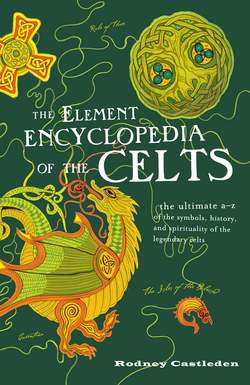Читать книгу The Element Encyclopedia of the Celts - Rodney Castleden - Страница 16
REAL PEOPLE
ОглавлениеWhen the Romans left Britain in the fifth century AD, the Dark Age Celts (the Romanized Britons left behind) had a new battle for survival on their hands, this time against an incursion of Anglo-Saxon invaders.
This was the time of Arthur, the legendary Arthur, the Dark Age Celtic king who rallied the Britons and led them into battle, halting the westward advance of the Saxons across Britain for a quarter of a century, until he too fell in battle at Camlann in 547—if indeed he existed. There are some who believe that he really did. If so, how many of the stories about him are true?
There is a wide spectrum of views about Arthur. Some people believe that he was everything the legends of the high Middle Ages say he was—a noble, true, and Christian king who rallied the native Britons at a time when they were being overwhelmed by the westward march of the Saxons. Others believe that he never existed at all, that there was no such king, and that he was invented in retrospect long after the British struggle for survival had been lost. Was he perhaps a typically Celtic keening for a lost might-have-been history?
King Arthur does seem to represent the essence of Celticness in the same way as a bagpipe lament. Complex and enigmatic, resonant with visionary ideals, noble failure, and a wistful nostalgia for what might have been, his story represents a dark, vibrant, inspiring, and wonderful past that we desperately want to believe in.
For centuries, myth, mystery, magic, and mysticism have been associated with the Celts. I hope this book will satisfy any curiosity regarding that spiritual side of the Celtic personality. But it is also important to remind ourselves that the Celts ate and drank and lived in houses, worked for their living, played music, told stories, and liked playing games. This everyday side needs to be sketched in, however lightly, to round out the picture of a remarkable, inventive, and longenduring people—a real people, as real as we are.
